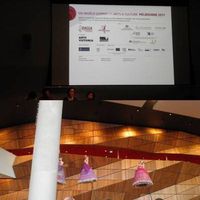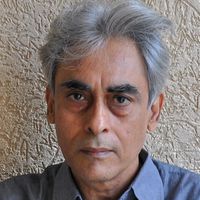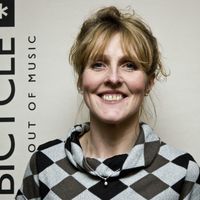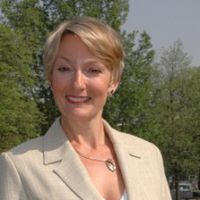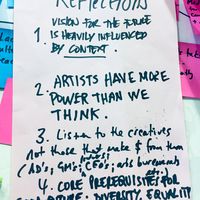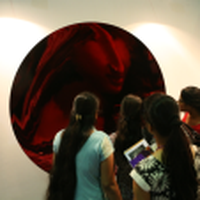Artists and economic growth | Interview with Malou Jacob
 [caption id="attachment_17556" align="aligncenter" width="375" caption="Malou Jacob"]
[caption id="attachment_17556" align="aligncenter" width="375" caption="Malou Jacob"]Contributed by Ulla-Alexandra Mattl
Malou Jacob is a playwright and the Executive Director of the National Commission for Culture and the Arts (NCCA) in the Philippines, which was started by a group of artists immediately after the revolution in 1986 and which is composed by 19 committees at lowest level.
During the 5th World Summit on Arts and Culture in Melbourne, Australia on 3-6 October she calls for action in order to “turn the world economic crisis into an opportunity”.
Speaking during the session on Changing Places - Cultural Policies in Asia she says that the Philippines are one of the richest countries in the world but asks herself why they are still so marginalised economically. In a country that is prone to earthquakes and eruptions from active volcanoes, buffeted by typhoons and has had to deal with decades of conflict and poverty she argues that there can be a way to further the creative and cultural industries so that the artist is at the core.
The development of the cultural industries should also be for the economic benefit of the artist – not at his expense. She points at the fact that artists are exploited by loan sharks, galleries who take most of the profit when the art work is sold but also talks about a lack of respect for copyright.
During the summit she stresses that “in the spirit of cultural rapprochement, it is imperative that the meeting of Asia and Europe in the 21st Century be based on equality, mutual respect, and just remuneration for the Asian traditional artists.”
Jacob believes that the artist should be developed in parallel to the creative and the cultural industries. In this way, with the help of the NCCA and while keeping in mind that the originator is not the government, a new breed of cultural entrepreneurs could be created.
In 2008 when she came in as deputy director of the NCCA Jacob introduced the “Artists for Crisis programme”. So far there have been three sessions (2009, 2010 and 2011). The concept of the programme is to open the NCCA which is inclusive – not exclusive and send artists from all across the country to mostly rural and remote areas. These are visual artists, poets, dramatist, musicians who want to share their art with victims of war, natural disasters like typhoons, earthquakes etc. They create a module on how to share their talent which is then brought to the community and being tested. Then three workshops are lined up before the year ends. Those benefiting are mainly women, young people and children.
During the programme more than 90 artists across the country have been involved so far, while it all started with only four master facilitators.
Now that the model has been tested and they are sure that it works Jacob is convinced that it will be exported to other countries. “The idea has already been presented to the ASEAN and we are waiting for feedback”, she says. Since the ASEAN is part of the Pacific Ring of Fire (PRF) and also suffers from typhoons she believes that they are likely to pick up on it.
It is a strategy that opens up the NCCA to artists who are not part of its committees and at the same time, she says that they are seeing that the programme has an effect on the quality of artists who are part of them.
Through the programme the NCCA is able to distinguish the artists from marginalised communities. However, they cannot afford to go to Manila or other cities. “We have to give them opportunities to own their talent” Jacob says.
Jacob is convinced that the programme is one way of turning the economic crisis into an opportunity for artists –by involving them as much as possible.
“If you are a famous artist from the University of Manila or you are a brilliant playwright and you go to a remote area or to a marginalised community, it deepens you and changes you as an artist, it matures you. It is good for the artist coming from the city; it is good for the artist and the young people there. The NCCA gains from it because artists part of the committees become much better. The city gains from it and the child gains from it.” It is an exchange – within the country. As much as the Philippines want to work and co-operate internationally there is still a great need to connect different social groups within the country.
This is Jacob’s first World Summit on Arts and Culture. While she did not know very much about IFACCA before she arrived in Melbourne, she said she would be going back home and spread information about the organisation, believing that it is an organisation which “is really going to do something”.
During her time at the conference, she says, she has also thought of a possible future role IFACCA could be playing. “While Australia is in Asia it is sometimes counted in and sometimes it isn’t”, she says. Jacob suggests that Australia could be a bridge between Europe and Asia: “Australia can convince Europe to come to Asia in the 21st century on equal terms with fairness etc. Australia can do that through IFACCA which could have a closer look at what the role and significance of Australia could be”, she finds.
Keeping the theme of the World Summit “Creative Intersections” (exploring how the arts and creativity are integral to other sectors) in mind Jacob once more points to what is for her the most important intersection.
“An economy of culture that will primarily benefit the artists who may be traditional or contemporary. If you do not lose sight of that then there is a reason for the development of the cultural industries.”
Ulla-Alexandra Mattl is the Co-ordintor of EUNIC in Brussels and the Project Manager of the European project Poliglotti4.eu. She is also the EU Correspondent for the Artsmanagement Network. Ulla is specialised in cultural relations and holds an MA in Cultural Policy and Arts Management from City University London as well as an MA in Finno-Ugric Studies and French with focus on Sociolinguistics www.poliglotti4.eu

